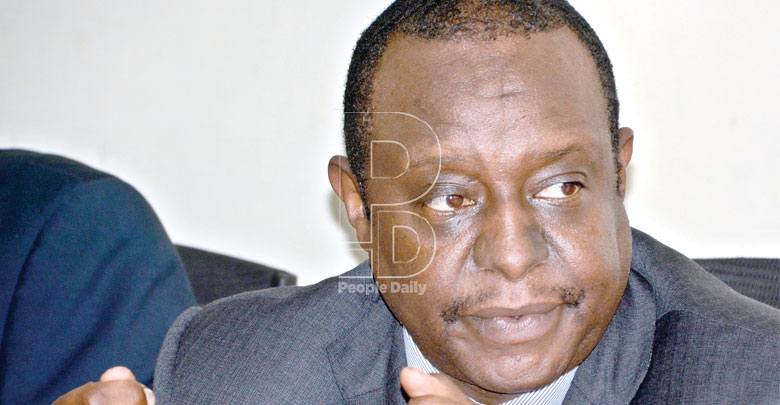Former CS Rotich opposes bid to amend graft charges

Former Treasury Cabinet Secretary Henry Rotich has opposed an application seeking to amend charges in the Sh63 billion Kimwarer and Arror dams case.
Rotich, former Kerio Valley Development Authority Managing Director David Kimosop and a former director of the Resource Mobilisation Department at the Treasury are opposed to the consolidation of their files, arguing the move would undermine their rights to access justice.
Director of Public Prosecutions had last week filed a fresh application to amend the charge sheet and consolidate two files dropping the names of some accused from 18 to 9 and reducing the counts from 40 to 30.
DPP wants to consolidate Rotich’s case with that of Kimosop, who had been charged in a separate file.
Special Prosecutor Taib Ali Taib and Deputy Director of ODPP Alexander Muteti claim that once the cases are consolidated, the number of witnesses will drop from 104 to 52, thus expediting the determination of the two cases that have great public interest.
However, Rotich and Kimosop, through lawyers Kioko Kilukumi and Philip Nyachoti are separately opposed to the consolidation, saying the DPP has not put forth in an affidavit whatsoever the reason for termination of charges, so as to persuade the court to grant permission.
Obvious reason
They state that the proposed amended charge sheet clearly violates express constitutional provisions and therefore null and void.
Rotich, through Kilukumi, argues that DPP has not sought the court’s permission to discontinue prosecution against any of the accused in any of the files. “The DPP cannot discontinue a prosecution without the permission of the court,” he states in court documents
“For the avoidance of doubt, the first accused (Rotich) is not opposed to the release of any accused person, whether or not such person will be a prosecution witness at the trial,” says Kilukumi.
Rotich argues that it was the prosecution, which from inception separated the cases for the very obvious reason that they were separable for efficacious and speedy trial.
He also contends that he is a petitioner in judicial review proceedings pending hearing and determination before the High Court challenging his prosecution on the basis of the charge sheet filed in the subordinate court on October 31, 2019.
He says the amendment will invariably affect and render inefficacious the orders sought from the High Court, in the event the court was to grant those prayers.
“It will only be fair and just for this subordinate court to await the hearing and determination of the petition by the superior court for orderly administration of justice,” he says.
The former CS also contends that the proposed amended charge sheet has 19 counts brought against him and he has nothing to do with the other 11 counts brought against the other accused persons.
“Many prosecution witnesses will be called in an attempt to prove those charges and I will be expected to sit through as a spectator, while the time for a speedy conclusion of my trial is taken away by charges that I have no connection with,” he states.
Common question
According to him, consolidation of charges will not result in an expeditious conclusion as asserted by the prosecution.
On the other hand, Jackson Kinyanjui and David Kimosop, through lawyer Philip Nyachoti argue that the application to amend and abandon the other accused persons from the charge sheet is grossly misconceived, misplaced, mischievous, frivolous and vexatious and the same constitute to an abuse of the process of the court and therefore dismissed.
They contend that the application does not meet the threshold for consolidation, as the two suits do not present a common question of law and fact and therefore no nexus whatsoever.
“This case involves allegations of financing development of Arror and Kimwarer multi-purpose dam projects whereas the other case involves the alleged failure by the accused persons to effect and adhere to procurement processes,” they state in court documents.
They argue that the proposed amended charge sheet contains a total of 30 counts against the accused, a clear overload of the charge sheet contrary to the law.
The two contend that the High Court has expressly denied granting consolidation of criminal matters where it is likely that an injustice will be occasioned and if the consolidation was to be allowed, the number of counts in the charge sheet ought not to be more than 12.
Court will on October 29 rule on whether to allow the amendment.













